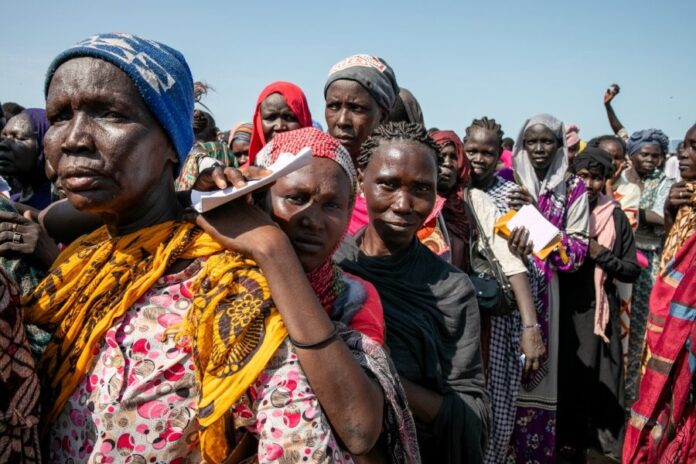Author: Nanda Röling
Affiliation: Radboud University, Nijmegen- the Netherlands
Organization/Publisher: Nijmegen School of Management
Date/Place: August 15, 2022/Netherlands
Type of Literature: Master Thesis
Number of Pages: 71
Link: https://theses.ubn.ru.nl/handle/123456789/13619
Keywords: Natural Resources, Political Exclusion, Intrastate Conflict, Ethnic Minority, Decision-Making
Brief:
This research aims to examine the correlation between natural resources and political exclusion from an ethnic minority group’s perspective on decision-making and its impact on violent intrastate conflicts. The study employs a qualitative content analysis of South Sudan as a case study and examines three theoretical perspectives: “the loot-ability of natural resources”, “the political economy approach”, and “the influence of rebel actors on conflict”.
The loot-ability of natural resources perspective argues that natural resources are a cause of conflict because they can be easily stolen or plundered, and this is particularly true in weak or failed states where there is a lack of effective governance. This perspective suggests that the presence of natural resources can lead to the emergence of rebel groups who seek to gain control of these resources as a means of financing their activities.
The political economy approach, on the other hand, argues that natural resources can be a source of conflict when they are unevenly distributed and controlled by a small elite, leading to widespread poverty and inequality. This approach suggests that natural resources can be a source of conflict when they are controlled by a small elite who use their power and influence to maintain their grip on these resources, often at the expense of the majority of the population.
The influence of rebel actors on conflict perspective suggests that rebel groups can use political exclusion as a justification for their actions and as a means of recruitment. This perspective suggests that while political exclusion may be a factor, there are often other underlying causes, such as greed for natural resources. Rebel groups may be willing to engage in prolonged conflicts if they see the potential reward of gaining access to natural resources, and resource-rich countries tend to experience more conflict than resource-poor countries.
The results of this study suggest that natural resources and political exclusion exacerbate conflicts in South Sudan. However, the study also reveals that other factors such as ethnic polarization, political regime, and conflict duration also play a role. The study identifies four types of resource conflicts that can challenge a country’s stability: secessionists conflicts, resource disputes as part of a new national compact, grievances over stand-alone projects, and multiple small-scale disputes. Each type relates to the political economy approach in different ways, for example, focusing on the distribution of natural resources and the stability of politics and economy.
Additionally, the study lists four potential issues that can cause national resource conflicts: ownership of natural resources, allocation of power to manage access to resources, distribution of resource revenues, and environmental and social damages caused by extraction. The study also notes that rebel actors use political exclusion as a justification for their actions and as a means of recruitment. However, it also notes that there are often other underlying causes, such as greed for natural resources. The study cites research by Lujala (2010) which found that rebel groups with access to hydrocarbons or gemstones tend to prolong conflicts, and that onshore oil production increases the risk of conflict.
Weinstein’s (2007) study of rebel movements in Peru, Uganda, and Mozambique, which found that resource financing has a significant impact on the behavior of individuals. Rebel groups with access to easy financing opportunities are more likely to use indiscriminate violence, while groups with a focus on social endowments are more likely to use selective violence and to maintain a positive relationship with civilians. The study also notes that economic and social interests are possible reasons why rebel actors desire natural resources. However, it notes that natural resources mattered less in a study of why individuals participated in the Sierra Leone conflict, with factors such as short-term gains, an individual’s economic and social position, social pressures, and costs and benefits having more of an impact. The study concludes that individual behavior is a potential factor for why rebel actors may start or influence conflicts.
The study also examines the management of natural resources in South Sudan, specifically focusing on the role of oil in the country’s conflicts. South Sudan has many natural resources, but oil is particularly significant. Despite the oil fields not being located close to the capital of Juba, they are managed by the government, private companies, and national companies, with Asian companies being the most prominent. The oil fields, production, and revenues generated are managed by the government, private companies, and national companies, while the Nile Petroleum Corporation (Nilepet) has a stakeholder position in the oil market.
However, the study also highlights that the management of natural resources in South Sudan poses challenges. Theoretically, natural resources are hard to manage by the government and more accessible by rebel actors. This can lead to conflicts over control and access to these resources, with the rebel groups using the resources to finance their activities and prolong conflicts. The study delves into the characteristics of the ethnic minority group in South Sudan and how they are affected by the conflicts. The ethnic minority group in South Sudan is marginalized and excluded from decision-making processes. This political exclusion exacerbates conflicts and makes it more likely that they will be affected by the violence.
In conclusion, this study finds that natural resources and political exclusion from an ethnic minority group’s perspective on decision-making can exacerbate conflicts in South Sudan. The study also finds that other factors such as ethnic polarization and conflict duration play a role in the conflicts. It identifies four types of resource conflicts that can challenge a country’s stability and four potential issues that can cause national resource conflicts. The study calls for further research to be conducted on the management of natural resources and the potential for them to be used as a tool for conflict resolution.
By: Ruby Clayton, CIGA Research Associate




